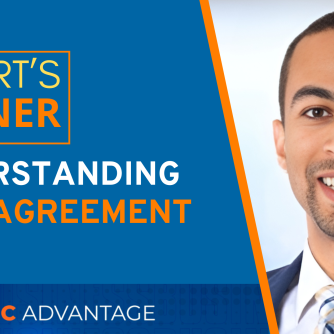
Sponsored Post by AWH
Written by Ryan Frederick
Founders leaving a company can send shock waves, especially if it’s sudden. All Founder exits are not necessarily bad for the Founder or the company. In the best situations, a Founder’s departure is both strategic and mutual.
Founders leave companies for a variety of reasons that can range from the company evolving to a point where they need professional management beyond the Founder’s current capability or desire, to the company is woefully underperforming and the board members decide on the change to try to get the company back on track. It would be great if all Founder departures were based on performance relative to the stage of the company and expectations, but of course, we know this isn’t always the case when there are people involved who bring their ego and other self-interests into the mix.
The biggest shock wave, of a Founder leaving the company, is with the team. In most cases, the Founder played a key role in recruiting, and the team is with the company as a result of the Founder’s vision and passion for the company and the problem the company is solving. A Founder leaving the company unexpectedly can be jarring for much of the team and cause some team members to question their status within the company. When a Founder leaves the company, team members who are particularly close to the Founder and who joined the company specifically to work with the Founder need to understand the reasons for the Founders departure and assess whether they want to continue to be a part of the team moving forward.
How a company handles a Founder leaving has a significant impact on how the news is received by the team, customers, partners, investors and other stakeholders. Founder departures that are strategic and planned still require proper communication with stakeholders even though most will know about it in some way before it happens. Unplanned and sudden Founder departures don’t allow for as much planning and beforehand communication as planned ones, but companies still need to share as much as they can about the departure and the reasons behind it with stakeholders as soon as possible. Companies have a responsibility to be as transparent as possible during a time of Founder transition to quell stakeholder concerns and to communicate the immediate path forward. The worst thing a company can do is hope the transition will just blow over, without addressing it directly with stakeholders. It’s important for stakeholders to have a positive view of the companies short and long-term future and keeping them in the dark will just sow distrust.
If you are a team member at a company when a Founder leaves you have a lot to consider and you have to be honest with yourself about the situation. Is the departure warranted based on the Founder or company’s performance? Is the departure in the best interest of the Founder and company? What if it’s just in the best interest of the company? How does that make you feel, and can you separate your relationship with the Founder from what is in the best interest of the company? What if the company, i.e. The Board, didn’t handle the departure well or what if you learn it really was a political or personality conflict that resulted in the departure? All of these questions and more should inform your decision to continue with the company after a Founders departure.
Team members need to consider their career and what is in their best professional interest. If a team member loves the work they are doing, the people they are doing it with, and the mission of the company, is that enough to outweigh any misgivings about a Founders departure?
I also want to be clear that as I am referring to the company as an entity, there are people behind the company that make the decision to part ways with a Founder. These people are the board members and it usually only takes a majority to make a change like this. Do company board members have egos and agendas that don’t always align with that of a Founder and other board members? Absolutely. It happens more than anyone wants to know or admit. And this is where it gets tricky for Founders that don’t control the majority of the company and board votes, most likely because they have taken outside investment to fund the company, they are at the mercy of the board.
It is imperative Founders constitute their company’s board with people who are there to work in the best interest of, and to serve, the company. Board members who are driven by their own ego, greed, and self-interests are much more likely to get into conflicts with Founders that result in a dysfunctional board and someone leaving the company. Board members leave companies too, but more often than not, it’s a Founder that leaves and they are far more likely to cause disruption with their departure.
If a Founder leaves a company, especially if it’s suddenly, the way the departure is handled will be the difference between whether the company continues in a positive or negative direction. A Founder departure that is not handled well or that is the result of some conflicts inside of the company almost never ends well for either party.







